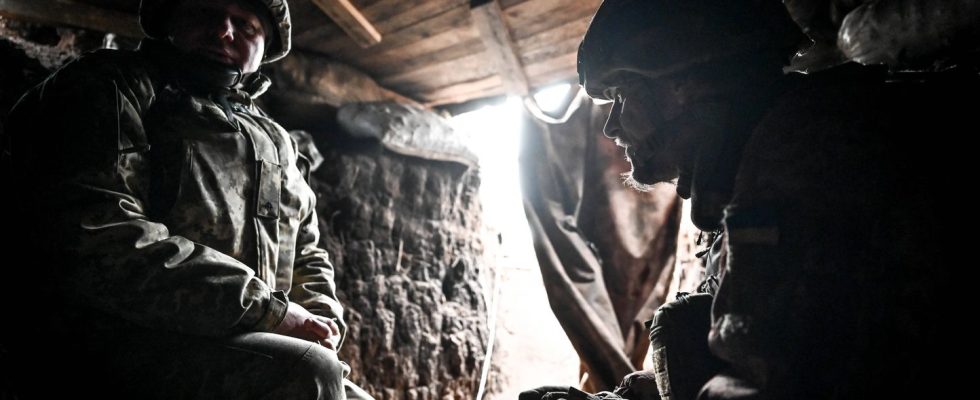After cluster bombs and phosphorus bombs, Russia is said to have used combat gas in Ukraine. A first. The United States, in fact, accused Russian forces this Wednesday of using chloropicrin, a suffocating chemical agent. In its statement, Washington adds that Moscow would also use riot gas. All in violation of the Convention on the Prohibition of Chemical Weapons, signed by Russia.
But what is chloropicrin? And why would Moscow use it now? Elements of response with Vincent Desportes, former general of the French army and professor of strategy at Sciences po Paris and at HEC, who assures that it is not the “laws of war” which hold back Vladimir Putin. A head of the Kremlin “who doesn’t care about the international community and the rules, already flouted several times, knowing that the world will not rebel, except in the event of the use of atomic weapons”.
What is chloropicrin?
A very chemical name that doesn’t mislead. Chloropicrin has been known as a weapon of war since the First World War, a conflict which established the trenches as a mode of defense. It is a derivative of chloroform, formerly used in particular as an anesthetic in hospitals and as a preservative for meat. Colorless, chloropicrin does not anesthetize but causes choking and irritation, according to the National Institutes of Health (NIH) and the MSD health and diagnostics manual.
As with most combat gases, the primary use of chloropicrin is agricultural: it is what we call a “fumigant”. That is to say a liquid which transforms into toxic gas on contact with air or water. In the food industry, this pesticide is still used today to prevent certain plant diseases. Banned in France by ministerial decree since 1991, chloropicrin is applied upstream of plantations, by injection into the soil in which it transforms into gas, in order to rid the land of organisms considered harmful and possible diseases, such as potato scab.
How was chloropicrin used in Ukraine?
“Regarding combat gases, we must already see who they are fired at to understand the desired effect. When they target civilians, a frightening effect is sought. Fired on a trench, it is in order to pursue an operational objective”, introduced to 20 minutes Vincent Desportes. And according to the United States, it is indeed the second objective which is targeted, with employment on the front which “is not an isolated incident”. “Gas is used to hit targets that shells cannot hit, in trenches for example. Then you quickly send a gas-protected unit to clear the area,” the general explains.
“The use of these chemicals is not an isolated incident in theaters of operations and is likely motivated by the desire of Russian forces to dislodge Ukrainian forces from fortified positions and make tactical advances on the battlefield “, wrote the American Department of State.
Finally, according to Vincent Desportes, “the use of chemical weapons can only be momentary, because afterwards the armies protect themselves. The desired effect is surprise, and to surprise and hope to achieve a breakthrough and unblock a situation, you need something new,” says the former general.
So why has Moscow pulled out chloropicrin now?
Because for Russia, the novelty would therefore be chloropicrin. A weapon against which Ukrainian soldiers do not seem so well protected notes our expert: “in the images that reach us, I have not seen many Ukrainian soldiers equipped with gas masks. » Also, and even when the gases do not kill, “they put a unit out of action for several days which must then undergo decontamination – a very cumbersome process and which also applies to the attackers. Which also explains why the use of chloropicrin can only be temporary. »
And if the United States is telling the truth, Russia will have waited more than two years after the start of the war in Ukraine, which quickly turned into trench warfare, to use a chemical agent. A question of “timing”, according to the general: “Russia is currently in a positive dynamic, but its means are not infinite. And if they had said they had destroyed their stockpile of chemical weapons, obviously they didn’t do it. And old gas is still good. »
Our file on the war in Ukraine
Also, and while the Ukrainians’ reserves of weapons, ammunition and equipment are at their lowest, “Russia is trying to take advantage of this to achieve a breakthrough. They have a window of a few weeks between now and the delivery of American weapons.” General Vincent Desportes also notes that “Russian military doctrine has always considered the offensive use of chemical weapons. This was already the case at the time of the Warsaw Pact”, the Soviet counterpart to NATO.

